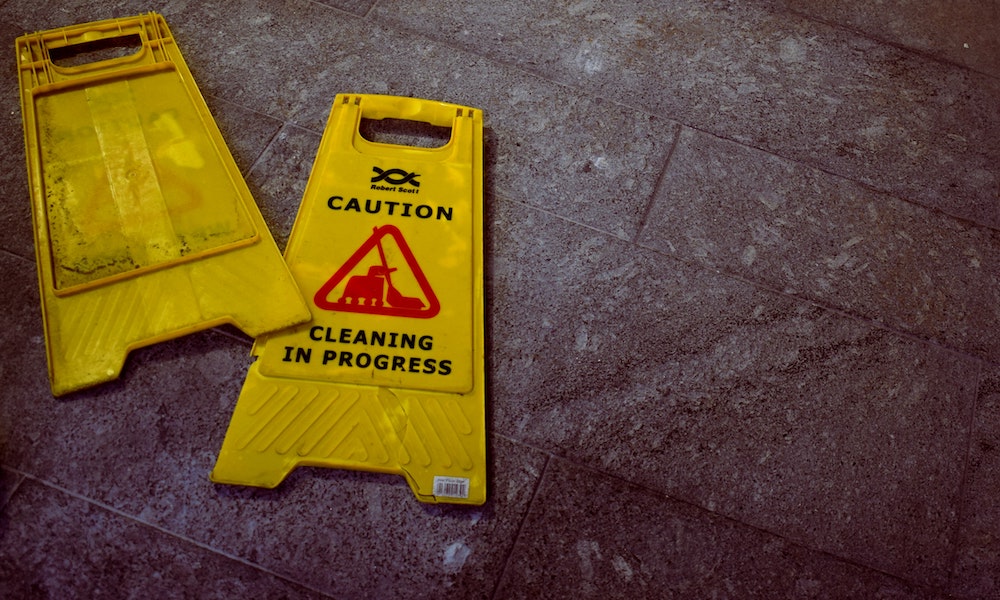Six holiday let administration tasks
It’s an exciting prospect - letting a holiday home and reaping the rewards. However, one of the reasons many homeowners look for support is the amount of time and consideration all the holiday let administration tasks take.
That said, your property is not only a big financial investment but it’s also a big personal investment too, so it’s understandable that you want to retain a sense of control, even if someone else is handling the daily grind.
In this article, we look at six of the most important holiday let administration tasks and how HolidayHost can make them easier for you whilst still giving you total transparency and control. They include:
- Financial administration
- Annual health and safety tasks
- Insurance
- Waste removal for holiday lets
- Tax considerations for holiday lets
- Planning for wear and tear
Annual health and safety checks:
Insurance:
Waste removal:
Tax considerations for holiday lets:
Planning for wear and tear:

Financial considerations for holiday let owners
From managing bookings to keeping track of changes in online travel agency commissions and the resulting revenue and profits that your holiday let generates, the financial administration of a holiday home takes time. It can be an unwanted headache at times too.
Holiday let financial tasks can include things like:
- Pricing
- Revenue
- Forecasting
- Monitoring income from multiple platforms
- Keeping payout details up to date
- Taxes
- Offsets
- Funding
Financial tasks HolidayHost can manage:
There are certain financial management points for your holiday home that have a direct impact on its marketability, so it’s important to get them right. Three key areas for this are price pointing and deposits, we play a significant role in supporting holiday home owners in both.

Pricing your holiday let
Pricing your holiday let includes a combination of factors. The OTA commission and HolidayHost fee need to be taken into consideration, as do the running costs of your property. In addition however, the local market, inflation, seasonality and less tangible elements such as public mood need to be reflected in the listed fees. Pricing is also impacted by the quality of your holiday let listing from its imagery to its photography. That’s why we work with you on all aspects of setting it up in order to make sure these elements are all in line with one another. At HolidayHost we don’t set prices more than 12 months in advance because the demand for holidays changes, and it’s vital that owners’ pricing strategies reflect that feeling in a timely manner.

Deposits for your holiday home
One of the most frequently asked questions from holiday home owners is about what happens if something gets damaged in their holiday homes when guests stay over and beyond natural wear and tear, and this is where deposits come in. Some letting agencies have eschewed the traditional concept of a deposit believing that it can put clients off booking. However, we have not seen evidence of this trend, and we see our job as protecting you and your interests as the Owner. Therefore, we always require guests to pay damage deposits. Our interest is in protecting your asset, securing your future income whilst also maximising profit on each booking.

Forecasting and income management
We understand that you let your holiday home because you want to make money and you want to be able to predict what you will earn in order to plan your life and personal finances. So we offer recommended pricing that's updated each year, with forecasting for your bookings for the forthcoming year, along with costs and profit.
Financial tasks that HolidayHost can offer advice on:
There are other areas of finance that holiday home owners do need to take into consideration when letting their home. While we do not manage these, we are able to apply our expertise to help owners improve their profits and ensure there are no surprises down the line. You should be aware that this is purely advice based on our experience and in these matters we would still recommend that you speak to a professional financial advisor.

Efficiencies
It’s not just the money that comes in that contributes towards the profitability and sustainable running of your holiday let. The money that doesn’t go out can also play an important role. For example, being aware of efficiency improvements such as smart energy systems can help you keep costs down when your holiday home is empty, but turn the heating on if cold weather is setting in to prevent pipes freezing.

Funding availability
In some instances, there are grants and funding available for specific property maintenance and improvements tasks, and it’s worth being aware of them. For example, investing in green energy can help attract prospective guests whilst also improving your property’s profitability and of course, helping to do your bit for our environment.

Annual health and safety tasks
Health and safety checks are essential when letting a holiday home. Most letting and marketing agents will not act on your behalf until these are done. However, in case you’re managing holiday lets yourself, it’s important to be aware of what needs doing and estimated costs for completion.
The key items are:
- Gas certificate: £80 to £120
Having an up to date gas safety certificate is a legal requirement of any letting property. It lasts for 12 months, so it needs to be done every year by a specialist. We can provide guidance as to who to go to for this.
- PAT testing electronics: £50 to £150
Portable Appliance Testing (PAT) is essential for owning a holiday let, making sure electrical equipment is safe to use. It isn’t a legal requirement but it may well be a requirement of your insurance, and given the liability if something goes wrong and you appear to have been negligent, it’s simply not worth not being careful. Again, this is something we can advise upon and help to organise.
- Fire Risk Assessment: around £80 to £200
Fire safety law applies to all properties in which people are paying to stay. As an owner of a holiday home, your liability is protected by your insurers only if the insurer’s expectations are met with regards to good site safety management. Devon and Somerset Fire Rescue Services have detailed some key points. However, Fire Risk Assessments are essential to make sure you’re covered and that’s something that we can advise on and help organise. They will highlight things that need updating as well as provide proof of due diligence.

Holiday let insurance admin
When running holiday lettings, it’s important to make sure all eventualities are suitably covered with the right level of insurance. When speaking to your broker or provider, make sure that you are clear on what the property is being used for. Contents and buildings insurance for holiday lets will cover specifics related to hosting paying guests in the property.
- Accidental damage:
Just as it sounds, this is in case things get damaged or broken in the property while a guest is staying. To some extent, this is expected - glasses get broken, flooring can get scratched and some of that you will simply want to cover with a sinking fund. Other things might be covered by a deposit. However, for big things - perhaps a broken window from an overzealous football, insurance for accidental damage can be helpful and provide peace of mind.
- Public liability insurance:
This is to cover legal costs and expenses if someone suffers an injury while staying in your property.
All of that said, you want to be covered but you don’t want to have unnecessary additions that simply add to the cost. Our experienced professional hosts will be able to provide guidance.

Waste removal for holiday lets
As you’re letting your holiday home it classes the property as a business, which means you may need to pay for waste collection in addition to the regular domestic collection so that the bins are collected more frequently.
Requirements and pricing for recycling and waste collection for holiday lets can vary depending on:
- Where your property is
- How much waste is being collected
- How often it’s being collected
On balance we would suggest bins are collected weekly. After all, no one wants to arrive to find someone else’s rubbish building up. We can offer advice on who to speak to locally.
Tax and VAT
When you’re letting your holiday home, it may have an impact on what taxes you pay and how much you need to pay as well. To check the status of your property and to make sure you’re paying appropriately, it’s best to speak to an accountant, but in the initial instance, HolidayHost can offer some guidance. Here’s a brief overview to get you started:
- Council tax and business rates
If you are making your holiday home available for holiday letting for more than 19 weeks (140 days) of the year then it should be registered with the local authority as a business, which will require business rates property tax rather than council tax.
- Class 2 National Insurance
Following on from the council tax point, if profits from your holiday let amount to £6,515 a year or more, then it counts as running a business and you are likely to be required to pay Class 2 National Insurance. Any income from a holiday let is subject to income tax and will have to be declared on your annual tax return.
- VAT
Your property income may be eligible for VAT. Holiday lets are charged at the standard VAT rate of 20% if it breaks the VAT registration threshold, which is currently £85,000, in any 12 month period.

Sinking funds
On any property there is wear and tear each year, whether it’s as a result of daily comings and goings, the ongoing maintenance of a property or even the weather. For this reason, we recommend putting together a sinking fund for your holiday home, to limit the likelihood of any financial surprises.
When setting up your holiday home, take into consideration ongoing costs of running a holiday home, annual costs, and put some cash aside for the unexpected. Also remember that with the best will in the world, things like glasses and plates do get broken, so consider this within your ‘fund’. If the fund is spent you will have avoided any surprises, and if it doesn’t get spent then you remain cash positive!
We always recommend that holiday homeowners arrange a sinking fund. This should help prevent any big financial surprises. We can help you decide what this ought to entail, but broadly speaking it should take into consideration ongoing costs, annual costs and some room for unexpected property maintenance.
Ongoing cost examples:
- Window cleaning
- Housekeeping
- Gardening
Annual cost examples:
- Pressure washing the patio
- Maintenance
- Wear and tear replacements
- Guttering clearance
Unexpected examples:
- Storm damage
- LeaksBroken glasses/crockery
- Broken boiler
In addition to a sinking fund, we do recommend that holiday homeowners take a deposit at the point of booking. While lots of letting agencies have dispensed with deposits because they feel it puts potential guests off, we feel that it’s an important part of ensuring homeowners feel secure in opening up their properties. Between the deposit, a sinking fund and appropriate insurance, your property will be well cared for, and we will support you every step of the way, whether it’s providing advice or handling the details of these different holiday let administration tasks.
Having well organised systems in place can make running and letting a holiday home so much easier and more enjoyable. At HolidayHost we want to help you make the most of your property - that means enjoying it on your own terms, making the most profit, and minimising the hassle of letting. To find out more about letting with the help of HolidayHost, contact our team any time.



